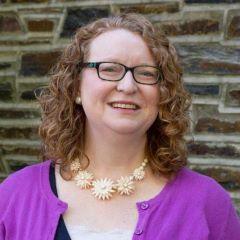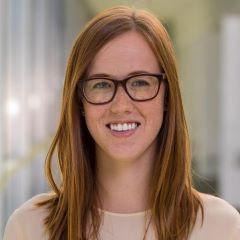
Blog
Why We Wrote Alumni Profiles and You Should, Too
You’ve seen the Alumni Profiles published by your colleagues. What inspired them to interview a graduate alum, and what did they gain from the experience? Hear takeaways from four recent authors—and find out how you can get involved.
What were your goals for participating in the Alumni Profiles series?

“Past the halfway mark of my Ph.D. studies, career exploration began to feel inevitable. I am one of those unlucky individuals who are interested in too many things and do not necessarily want to follow an academic journey after graduating. I felt so lost that I did not even know how to start the process of planning my future. Connecting with people who had embarked on different, non-academic ventures after Duke not only gave me inspiration, but also helped me feel comfortable with exploring a wide variety of career options.” – Hanna Varga, Ph.D. candidate in Environmental Engineering
You can read Hanna’s profiles of Megan O’Connor, Ph.D. ’17 (Civil and Environmental Engineering), CEO and co-founder of Nth Cycle, and Barbara Dugelby, Ph.D. ‘95(Environmental Sciences), Director, Wild Basin Creative Research Center

“For me, writing an alum profile presented the opportunity to practice a less-used genre of writing and to have a substantial conversation with a senior scholar in my field. I intended to conduct an interview that would produce a wide-ranging profile and a meaningful set of materials for my interviewee to keep. Ultimately, I was pleased with the profile’s scope, and I think Dr. Usner was also happy with the final product. It was also helpful to go through the editing process with Dr. Bostrom and get a feel for how collaborative revision within publishing may work.” – Nikki Locklear, Ph.D. student in History.
You can read Nikki’s profile of Daniel H. Usner, Ph.D. ’81 (History), Holland N. McTyeire Professor of History, Vanderbilt University
Have you experienced any positive outcomes from writing the profile?

“Conducting the alum interview gave me more than what I expected because my interviewee, the alum, demonstrated as much curiosity in me as I did in them. The interview finished, but the conversations and relationship continued and still persist today. This eventually led us to collaborate and work together on several projects at the alum's company–and it all started with a meaningful interview.” – Krishni Metivier, recent Ph.D. graduate, currently Antiracism Consultant and Human-Centered Researcher.
You can read Krishni’s profile of Lesley Curtis, Ph.D. ‘11 (Romance Studies), Founder, Sagely

“The opportunity to build this connection with Dr. Battle [was great]; he is an incredible scholar and I feel I know him much better now than I did before…From writing the profile I received a very kind e-mail from Dean Jacqueline Looney thanking me for my contribution (I doubt I would have come to her attention otherwise). I also had the profile tweeted out by the Graduate School, which again probably raised some awareness of both Prof. Battle and myself. Lastly, I think the profile reflects well (and publicly so) on my commitment to promoting diversity in the academy.” – Elizabeth Schrader, Ph.D. candidate, Religion.
You can read Elizabeth’s profile of Michael Battle, Ph.D. ’95 (Religion), Episcopal priest, professor, and biographer of late Nobel Peace Prize winner Archbishop Desmond Tutu.
I’m interested. How would I get started?
The Professional Development Blog editors (email us!) will provide you with a list of questions for the interview and a template for reaching out to alums over email. You can reach out to an alum who’s already volunteered to be featured, or you can use LinkedIn and the Duke Alumni Network to identify a graduate alum of interest to you. (This video, developed by the Duke Career Center, can help you leverage LinkedIn alongside the Duke Alumni Network in your search.)
Deadlines are flexible and can be tailored to fit your schedule. We'll work with you to set a target due date for the first draft about two weeks after you conduct the interview, and we'll partner throughout the editing and publishing process to ensure that your post represents you well as an example of writing for a broad audience in an online format. You can find out the full details in our contributor guidelines.
Your blog post will include your bio and headshot as part of your author credit, and your piece will be shared with 3500+ readers of the weekly professional development newsletter and the broader Duke alumni community. You can share it with your own network through social media, too. We generally see hundreds of readers for these profiles!
These interviews with alumni can help you explore career options and grow your professional network. See what doors you can open to your next steps—starting with a conversation.
Author

Melissa Bostrom, Ph.D.
Assistant Dean, Graduate Student Professional Development
Melissa ensures that all Graduate School students can identify and develop transferable skills to prepare them for the full range of career opportunities open to master's- and Ph.D.-prepared professionals. She is Managing Editor of the blog.

Katelyn Mehling Ice, Ph.D.
Recent Ph.D. graduate, Political Science
Katelyn Mehling Ice is a recent graduate and holds a Ph.D. in Political Science, with a focus on American political institutions. She was also the Graduate Student Affairs Intern in The Graduate School for 2021-22. In her spare time, she runs a meal prep service and trains in Brazilian Jiu Jitsu and powerlifting. At the time of this publication, she was searching for her dream position in academic administration.